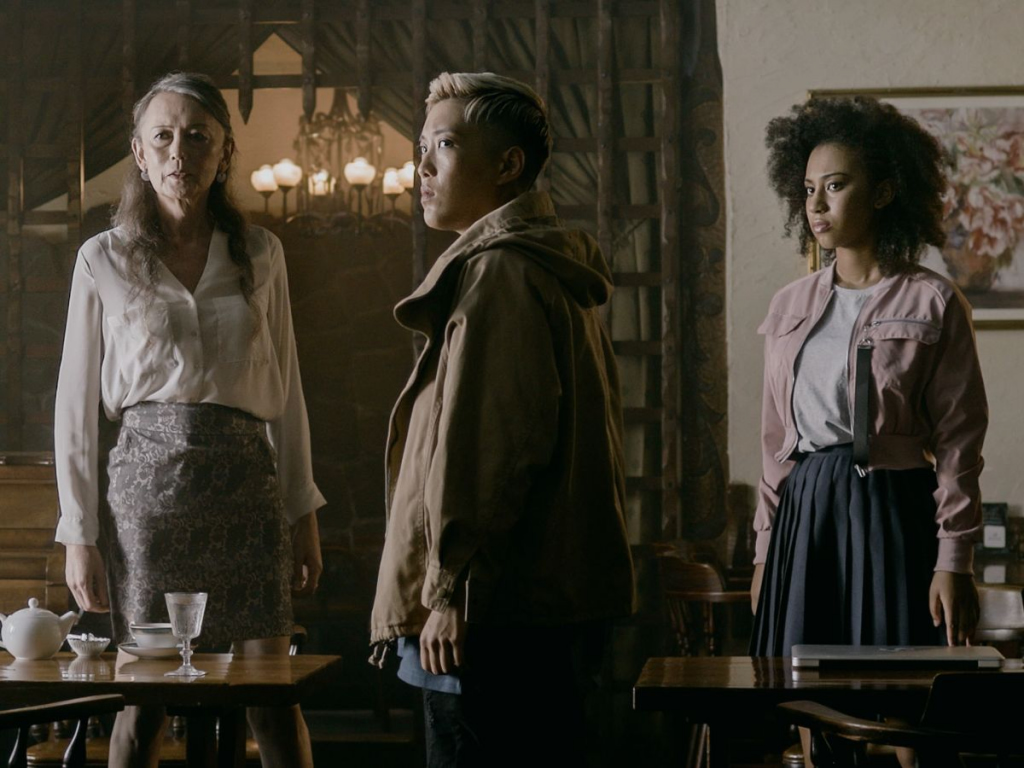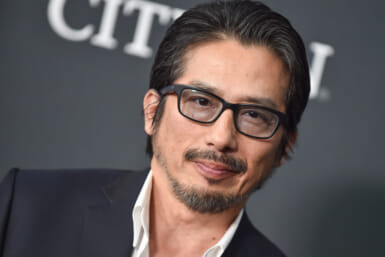Yuki Matsuzaki has an old-timey but to-the-point thing to say about the oft-repeated idea that Japan is one of the most homogenous nations on the planet: “Hogwash.” A Hollywood actor of over 20 years, Matsuzaki has appeared in Letters from Iwo Jima, Pirates of the Caribbean: On Stranger Tides, The Pink Panther 2 and many other productions. Unfortunately, his experiences also include the times he was told his height or hair didn’t look “authentically” Japanese.
After more than two decades of this, the actor concluded that the world has a too narrow definition of what it means to be Japanese. So, he decided to correct this problem the only way he knew how: through the medium of film. The result was the 2022 crime-drama short Mosaic Street. Written by Matsuzaki and directed by Shiho Fukada, it celebrates the diversity of modern Japan by casting openly transgender actress Kota Ishijima, openly lesbian actress Ami Ide and Afro-Japanese actress Ema Grace in the main roles.
We recently talked to the cast of Mosaic Street to learn more about the movie and the current state of Japanese entertainment.
1. Where did the idea for Mosaic Street come from?
Matsuzaki: I’d been aware of the lack of diversity in the Japanese entertainment industry for quite some time and always wondered what I can do to change that. When I saw Kota’s documentary The Butterfly, it made me wonder why a talented actress such as her wasn’t given a fair chance in the industry.
So, I asked her casually if she would be interested in creating a demo reel to show her acting to the world. She agreed. Then it came to my mind that I might as well represent the least represented minorities in the Japanese industries: transgender women, lesbians and mixed-race Japanese. So, I asked Ami and Ema if they would be interested in joining the project. They agreed. That’s how it started.
2. What attracted you to the movie?
Ishijima: I grew up in Japan, England, America and India while also attending 17 schools. I experienced prejudice when I was outside of Japan. However, when I was back in Japan, I was also treated as an “outsider” because of my behavior. I’d been struggling with my sexuality since I was child. I was lonely for a long time and was impressed with [Yuki’s] passion in regard to minority representation in Japan. He truly understands the sensibility and the difficulty of being a transgender actress. Yuki’s typhoon-like ability to take action is second to none, yet as you can see, he created an extremely sensitive film.
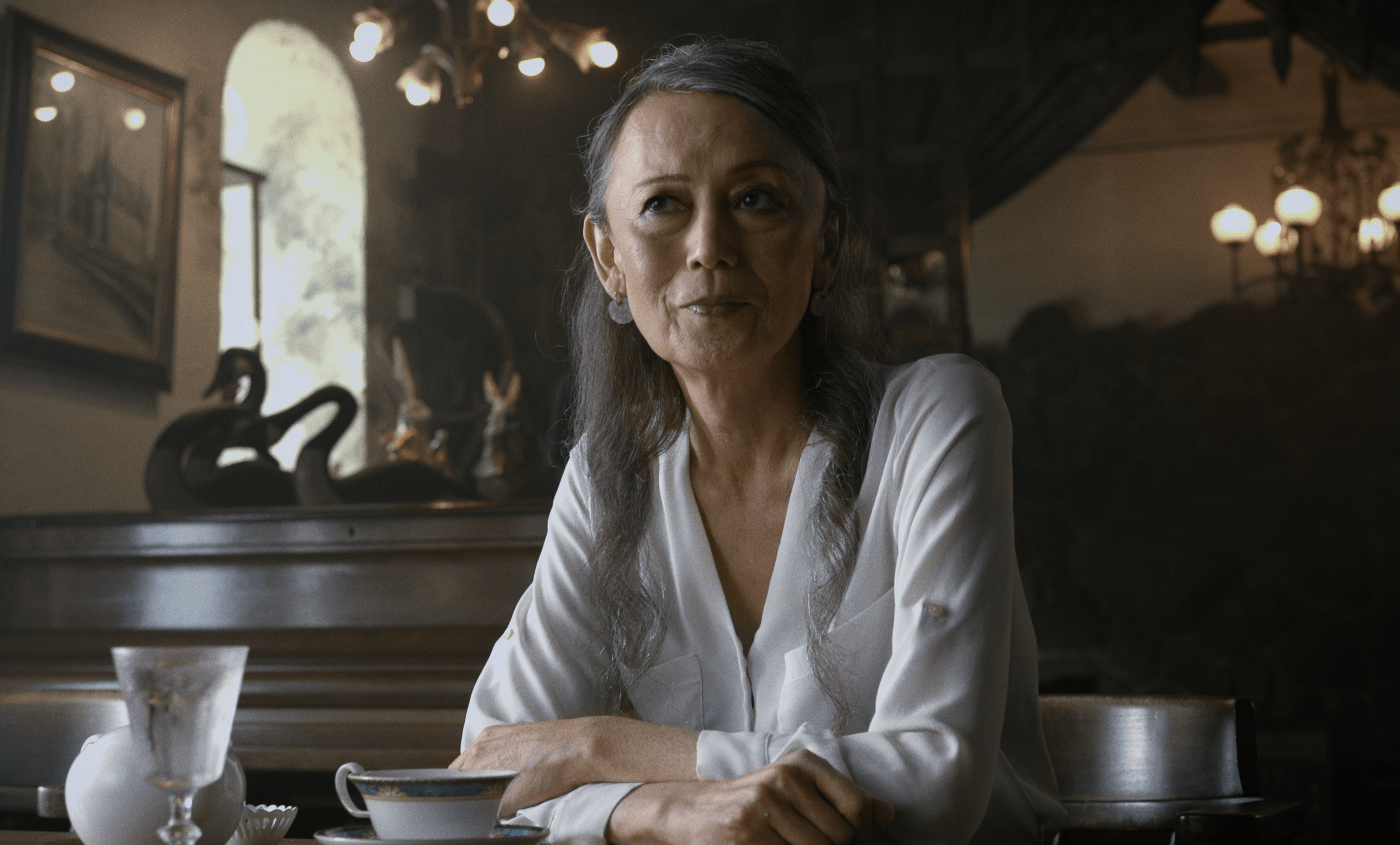
Kota Ishijima as Takanori Tokudome
3. What do you hope Mosaic Street will accomplish?
Matsuzaki: I really hope Mosaic Street can change how people in the Japanese entertainment industry think of how minorities should be represented in movies and TV series. They should know that it’s fine to cast them for “normal” Japanese roles. They don’t have to find a “reason” to include them. Just cast them for whatever roles they have. If that happens, then there are going to be more opportunities for minority actors in Japan and they will be able to become role models for minorities in Japan.
Ide: I’ve always wanted to be the change I wanted to see in the world. I hoped Mosaic Street would give younger generations an idea that we can do whatever we want to do even if you’re not “normal” in Japan.
4. Is there a reason why the characters in the movie switch between Japanese and fluent English?
Matsuzaki: The reason why the cast is speaking in both English and Japanese is that I wanted to prove to the world, and to the Japanese industry, that Japan is capable of creating compelling English-speaking content. If we start creating more content like this, I’m confident that Japan will be able to compete in the global market.

Ema Grace as Wakaba Mitarai
5. Do you think that Japan itself is also responsible for this “one-size-fits-all” image it has around the world?
Grace: I think this thinking came from what they teach at schools in Japan. I feel there’s always been a pressure that all students must be identical. Japanese schools deny the concept of diversity and force students to look and think the same way. I wonder how many parents in Japan teach their kids about diversity. It’s very rare for Japanese kids to be exposed to dolls or princesses or characters with dark skin like me. Most people have only seen the same skin tone and the same looking hairstyle since they were young. So, I suspect this childhood environment is also to be blamed for this misunderstanding of Japan being homogenous.
6. What has the response to the movie been so far?
Ishijima: Ever since Mosaic Street has been released on YouTube, the response by the people has been amazing. Some of the viewers did not know about us transgender actresses and were fascinated that we exist. I truly hope that one day soon, I can expand our activities in various media outlets as an “actress.”
7. Would you agree that transgender celebrities here are often pushed into adopting outlandish TV personas and almost never include trans men, ironically resulting in less diversity?
Ishijima: I agree. When I came back to Japan in 2008, we were called “New Hafu” [“New Half”]. But that term doesn’t exist any longer. I am troubled by this situation. The Japanese entertainment world is quite backward and doesn’t take chances. This is one of the reasons Yuki stood up. I was lucky.
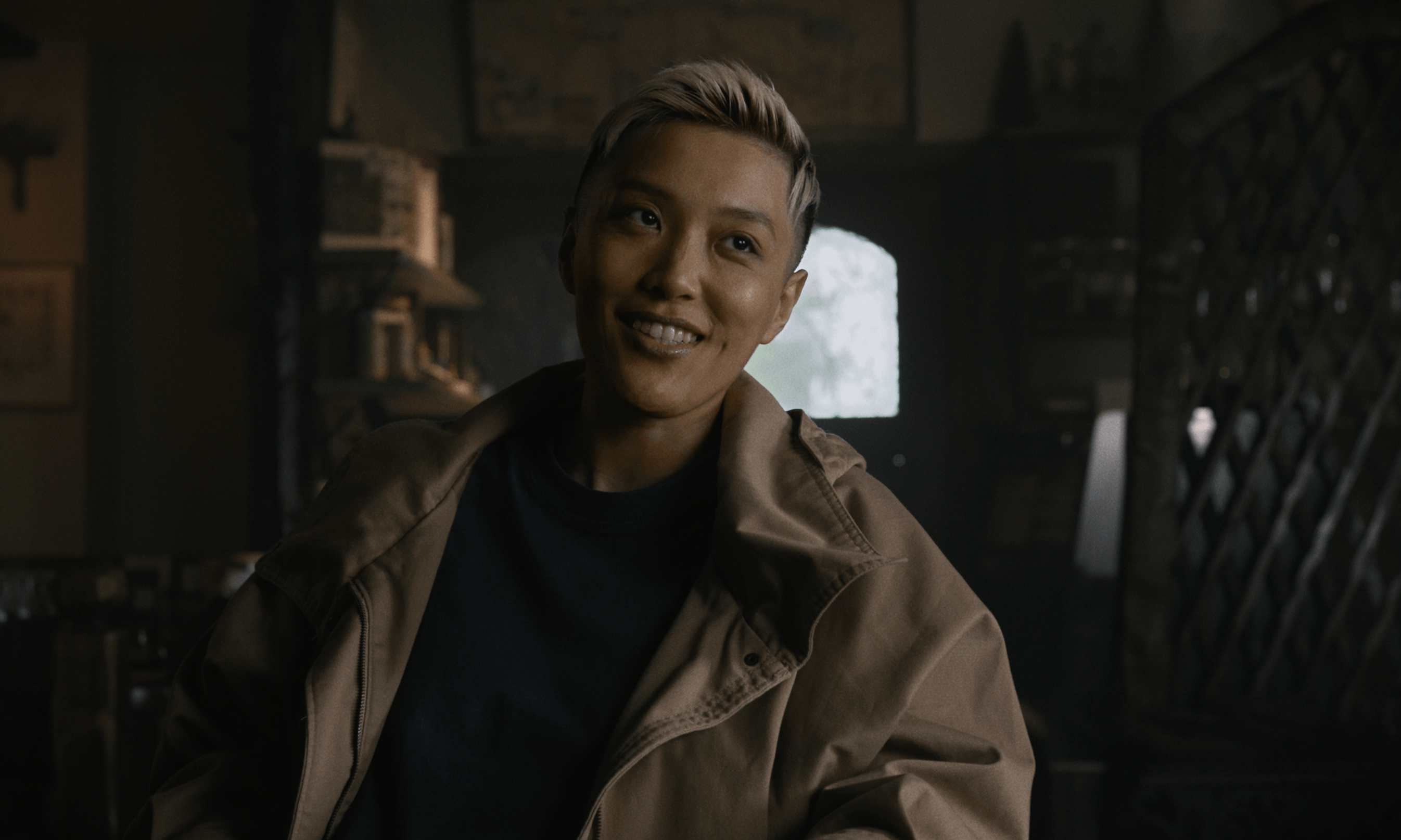
Ami Ide as Mayumi Ando
8. Japan also has plenty of movies and shows about gay men but very few mainstream stories about lesbians. Why do you think that is?
Ide: I don’t know why we don’t see lesbian shows much. We don’t even see openly gay women in Japan. Maybe it’s because the film industry in general is dominated by men. Most lesbian actresses are in the closet. I’m sure they are told by the industry that they can’t make it if they are openly gay. I remember one lesbian movie I saw and it was completely made by the male gaze, so I was very disappointed. They need to start hiring more lesbian or female directors.
9. Mosaic Street is set in a near-future where being “Japanese” is no longer defined by a person’s skin color, sexual orientation, or gender identity. How do we make that world a reality?
Grace: Mixed-race Japanese like me are normally treated as foreigners. We’re not even allowed to audition for “Japanese” roles. Even for background actors, we don’t see mixed-race Japanese. I’d love to keep on playing “normal” Japanese characters, not because I want to, but because I must, to change, little by little, the current lack of diversity in the Japanese industry. Because we don’t appear on screen, Japanese viewers don’t even realize that what they see on screen actually lacks diversity. But in our daily lives, we exist and we see many ethnicities in Japanese classrooms. Unless they notice the discrepancy between what they are portraying in the media and what we see in reality, they’re not going to invite us to any auditions.
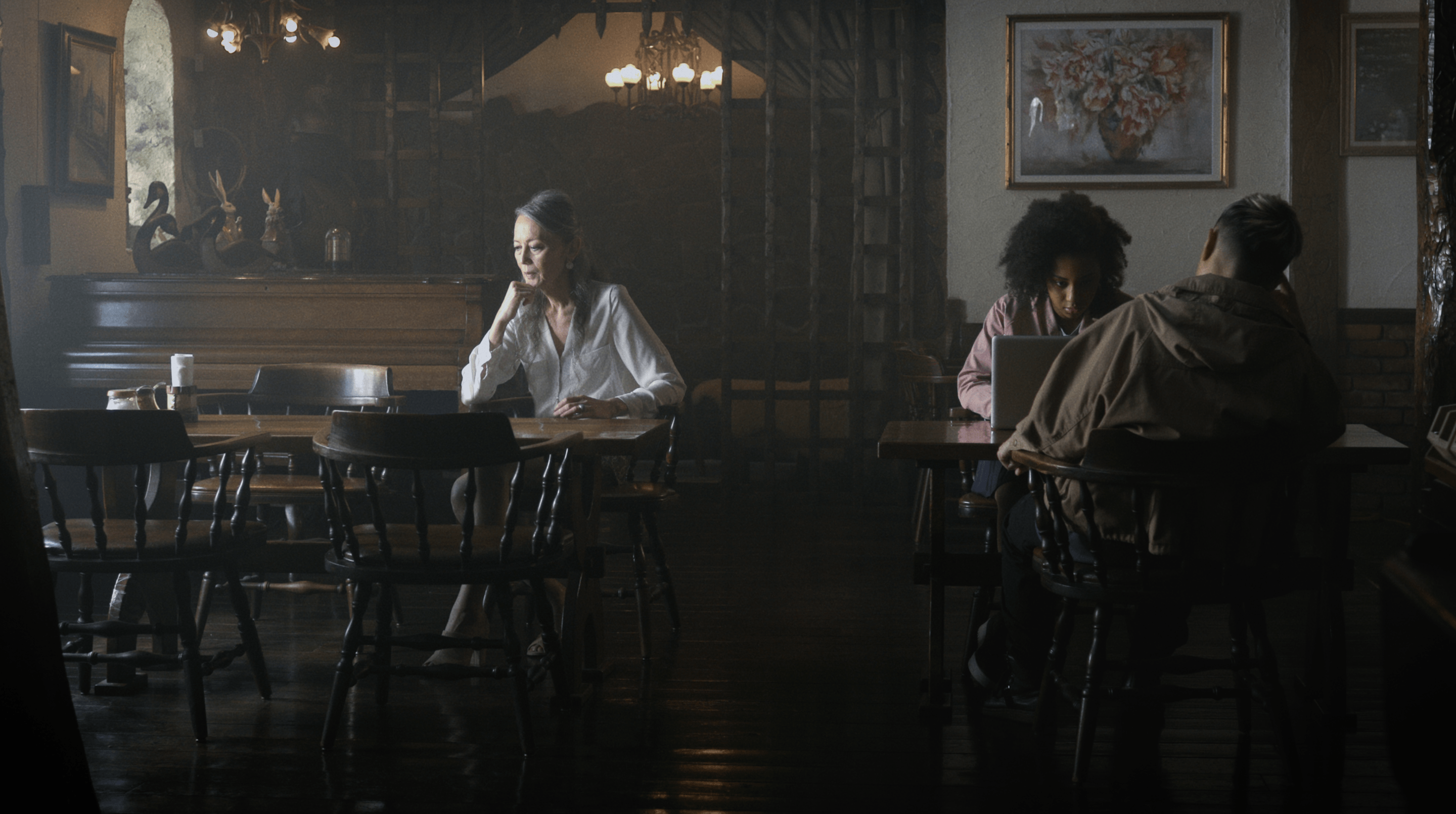
10. What are your hopes and dreams for the future?
Grace: I want Japan to accept its diversity and start creating movies and TV series that can compete internationally. I want to be part of that movement to make that dream come true. I want to appear in such diverse projects and I also want to produce myself.
Ishijima: Just like in the world of Mosaic Street, my hope is that one day soon, even terms like “LGBTQ” won’t exist and we would be one.
Ide: I’d never seen people like myself on TV in Japan because they were never cast in roles. I want kids to see me in some kind of art form (through music or in movies) and think it could be them.

